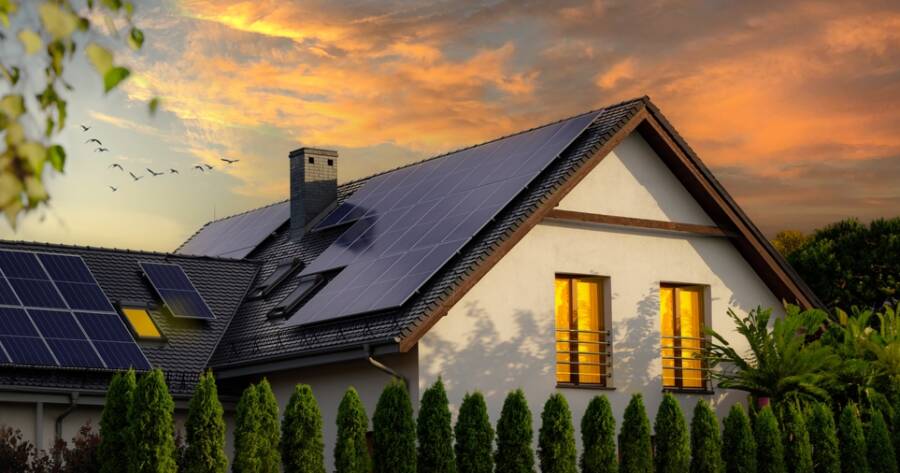Replacing your roof with solar panels is a bold move that blends sustainability with smart, long-term savings. As energy costs climb and technology improves, more homeowners are considering the switch. The idea of turning your rooftop into a power source is appealing, but it also raises important questions about cost, efficiency, and whether it’s the right fit for your home.
Is Your Roof Ready for Solar?
Before you decide to replace your roof with solar panels, one critical factor to assess is the current condition of your roof. If your roof is older or showing signs of wear and tear, this might be an ideal time to consider solar installation, as the panels will need to be removed if the roof requires repair later on.
If your roof is relatively new, adding solar panels without replacing the roof could still be a viable option, but make sure that the roof can support the weight and installation process. You might want to consult a roofing professional before moving forward.
Maximizing Energy Efficiency
If you’re seeking a way to increase your home’s energy efficiency, replacing your roof with solar panels could be a smart solution. Solar panels help reduce dependence on traditional energy sources, which can lead to lower energy consumption and less environmental impact.
Combining this with an energy-efficient roofing material can potentially maximize your home’s performance, improving insulation and reducing energy loss. However, it’s important to evaluate how much sunlight your home receives and whether your location will provide sufficient solar energy for the system to be worth the investment.
Roof Space and Design Considerations
Not all roofs are created equal, and before replacing yours with solar panels, you should assess your roof’s design and available space. Solar panels typically perform best on large, flat, or slightly sloped surfaces that face south to capture the most sunlight.
If your roof has multiple angles, shading, or a limited surface area, it may not be as efficient for solar panels. You may want to consult a solar specialist who can evaluate your roof’s suitability and design a system that maximizes energy production.
Long-Term Durability
Another factor to consider is the long-term durability of both your roof and the solar panels. A solar roof replacement can be a long-lasting investment, as solar panels typically come with warranties that extend for decades.
However, your roof’s underlying materials also need to have similar longevity to avoid issues down the line. Installing solar panels on a roof that isn’t built to last may lead to premature replacement and additional costs. You should carefully weigh whether both your roof and the panels will withstand the elements over time.
Environmental Impact
If you’re environmentally conscious, replacing your roof with solar panels might align well with your values. Solar energy is a renewable resource, meaning it doesn’t produce carbon emissions that traditional energy sources do.
By installing solar panels, you could reduce your household’s carbon footprint and contribute to a more sustainable future. However, the manufacturing and disposal processes for solar panels also come with an environmental cost, which you might want to research to fully understand the trade-offs.
Local Regulations and Incentives
Before proceeding with a solar roof replacement, it’s essential to check local building codes and homeowner association guidelines. Some areas may have restrictions on solar panel installations or specific rules regarding the appearance of your home. Additionally, many regions offer incentives or rebates for installing solar panels, which could make the decision more appealing. You should investigate what regulations apply to your area and explore any available incentives that could benefit you.
Wrapping It Up: A Bright Idea or Not?
Replacing your roof with solar panels could be a great idea if your roof is ready for the upgrade, you have ample sunlight, and you’re looking to increase your home’s energy efficiency. However, there are several factors to consider, including your roof’s condition, design, long-term durability, and environmental impact. By taking these elements into account and consulting professionals, you could determine whether this investment is the right move for your home.
